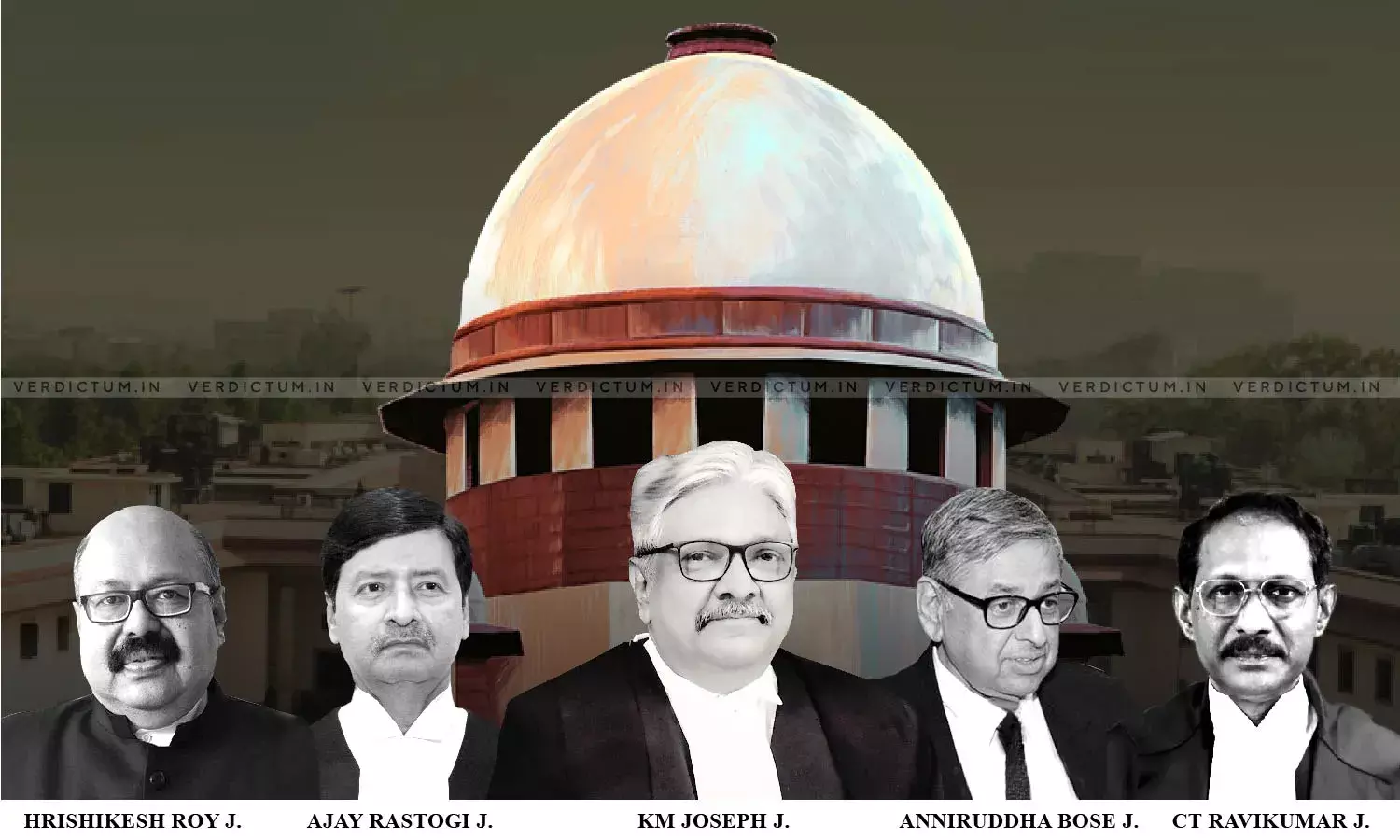Committee Of PM, CJI And Leader Of Opposition To Appoint Election Commission Members: Constitution Bench
A Constitution Bench of the Supreme Court today held that the appointment of Chief Election Commissioner and other Election Commissioners shall be made by the President on the advice of a committee comprising the Prime Minister, leader of Opposition in Lok Sabha (or leader of largest opposition party in Lok Sabha) and the Chief Justice of India.
Justice KM Joseph reading the judgment for the Constitution Bench said,
“We declare that as far as appointment to the post of Chief Election Commissioner and Election Commissioners, the same shall be done by the President of India on advice tendered by a committee consisting of:
(A) Prime Minister of India;
(B) The Leader of Opposition in Lok Sabha (in case of no such leader, the leader of the largest opposition party in the Lok Sabha) and
(C) The Chief Justice of India”
The Court said that this norm will continue to hold good unless the law is made by Parliament.
In his concurring opinion rendered by Justice Ajay Rastogi, he made other suggestions for insulating the election commission from executive interference in the office of Chief Election Commission as well as Election Commissioners.
“I have more suggestions to make. There are two procedural safeguards under Article 324:
1. The Chief Election Commissioner shall not be removed from his office except in like manner and on the like grounds as a Judge of the Supreme Court and
2. Conditions of service of the Chief Election Commissioner shall not be varied to his disadvantage after his appointment.
However, the proviso further provides that the Election Commissioners shall not be removed from office except on the recommendation of the Chief Election Commissioner. The protection available to the Chief Election Commissioner is not available to other Election Commissioners”.
The Court said that ‘like protection’ is needed to other Election Commissioners for its complete independence.
“Keeping in view neutral and independence of EC, to hold free and fair election, which is a sin qua non of a democracy as enshrined under constitution, it becomes imperative to shield the appointment of Election Commissioners and to be insulated from executive interference. It is need of the hour and advisable to extend the protection available to Chief Election Commissioner under Article 324(5) to other Election Commissioners as well, until any law is framed by the Parliament,” held the Court.
The Court said that it is desirable that grounds of removal of Election Commissioners shall be the same as Chief Election Commissioner. Further, it said that the Election Commission has to remain aloof from all forms of subjugation by an interference from the Executive.
In terms of financial autonomy, the Court said that the Union may consider bringing in necessary changes so that the election commission becomes truly an independent body.
“This is a very salutatory and erudite judgment”, said Advocate Prashant Bhushan who was present in the Court.
The Supreme Court was hearing a batch of pleas seeking an independent collegium-like system to appoint election commissioners and the Chief Election Commissioner so as to ensure the independence and autonomy of the national poll panel.
On November 24 of the last year, the Constitution Bench led by Justice KM Joseph and comprising Justice Ajay Rastogi, Justice Aniruddha Bose, Justice Hrishikesh Roy and Justice CT Ravikumar reserved its judgment in the matter.
The Court had orally observed that the inclusion of the Chief Justice of India in the consultative process for the appointment of Chief Election Commissioner would ensure independence of the poll panel.
During the hearing, the Solicitor General said to the Court it was a wrong presupposition that the mere presence of someone from the judiciary in the panel for appointment of Election Commissioners and the Chief Election Commissioner would ensure transparency and independence.
When the hearing was underway, the appointment of Election Commissioner Arun Goel by the Union Government came under the scanner of the Apex Court. The Court had then sought original records from the Centre pertaining to his appointment for perusal, saying it wanted to know whether there was any "hanky-panky".
The Court had also pointed out that since 2004, no chief election commissioner has completed the six-year tenure and during the 10-year rule of the UPA government, there were six CECs and in the eight years of the NDA government, there have been eight CECs.
Cause Title- Anoop Baranwal v. Union of India Ministry of Law and Justice Secretary




